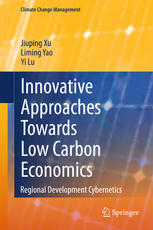

Most ebook files are in PDF format, so you can easily read them using various software such as Foxit Reader or directly on the Google Chrome browser.
Some ebook files are released by publishers in other formats such as .awz, .mobi, .epub, .fb2, etc. You may need to install specific software to read these formats on mobile/PC, such as Calibre.
Please read the tutorial at this link: https://ebookbell.com/faq
We offer FREE conversion to the popular formats you request; however, this may take some time. Therefore, right after payment, please email us, and we will try to provide the service as quickly as possible.
For some exceptional file formats or broken links (if any), please refrain from opening any disputes. Instead, email us first, and we will try to assist within a maximum of 6 hours.
EbookBell Team

4.1
80 reviewsClimate change is an inevitable and urgent global challenge with long-term implications for the sustainable development of all countries. To overcome this human crisis, the scientific consensus is driving global action towards low carbon economics. Though this action has to involve all sectors (industries, governments, and citizens) and at all levels (global, national and regional levels), the implementation of climate strategies will predominantly be at the regional level. By establishing an innovative range of model technologies, this book aims to develop systematic quantificational methods, such as uncertain multi-objective programming models and system dynamics models, to provide a new approach to low carbon economics that can serve as a paradigm for general regions. At the same time, it offers decision makers a number of effective strategies for some key issues in regional low carbon development, such as greenhouse gas control, ecological capacity evaluation, regional economic prediction, energy structure optimization, land resource utilization, industrial structure adjustment, low carbon industrial chains, low carbon transportation systems and low carbon tourism. It also provides researchers with a new perspective on how to address social problems using quantitative techniques.